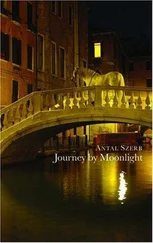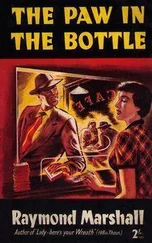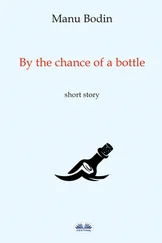Antal Szerb - Love in a Bottle
Здесь есть возможность читать онлайн «Antal Szerb - Love in a Bottle» весь текст электронной книги совершенно бесплатно (целиком полную версию без сокращений). В некоторых случаях можно слушать аудио, скачать через торрент в формате fb2 и присутствует краткое содержание. Год выпуска: 2013, Издательство: Pushkin Press, Жанр: Классическая проза, на английском языке. Описание произведения, (предисловие) а так же отзывы посетителей доступны на портале библиотеки ЛибКат.
- Название:Love in a Bottle
- Автор:
- Издательство:Pushkin Press
- Жанр:
- Год:2013
- ISBN:нет данных
- Рейтинг книги:5 / 5. Голосов: 1
-
Избранное:Добавить в избранное
- Отзывы:
-
Ваша оценка:
- 100
- 1
- 2
- 3
- 4
- 5
Love in a Bottle: краткое содержание, описание и аннотация
Предлагаем к чтению аннотацию, описание, краткое содержание или предисловие (зависит от того, что написал сам автор книги «Love in a Bottle»). Если вы не нашли необходимую информацию о книге — напишите в комментариях, мы постараемся отыскать её.
and
.
Love in a Bottle — читать онлайн бесплатно полную книгу (весь текст) целиком
Ниже представлен текст книги, разбитый по страницам. Система сохранения места последней прочитанной страницы, позволяет с удобством читать онлайн бесплатно книгу «Love in a Bottle», без необходимости каждый раз заново искать на чём Вы остановились. Поставьте закладку, и сможете в любой момент перейти на страницу, на которой закончили чтение.
Интервал:
Закладка:
The murder of Ottomini seems to have produced a major spiritual convulsion in Marcantonio. His Court Chaplain, the Jesuit father Marcuffini, who was renowned for the great saintliness of his life, took the view that the only road to absolution lay in the sanctity of repentance, and insisted that he should now give Imperia up for ever, on the grounds that the nature of his ‘regrettable error’ meant that to persist in the relationship would expose his soul to continuing mortal danger. Marcantonio, as a deeply religious man, would no doubt have readily undertaken any humiliating act of penance, especially one of the more picturesque and public varieties favoured by the age, but he had no intention of leaving Imperia: time makes every man the slave of custom. His spiritual crisis lasted almost half a year. During that time he lost a great deal of weight and incurred vast expense for the constant attendance of his doctor. Quite how the crisis was resolved is not clear, but what is beyond doubt is that at the end of that half-year he took part in a large-scale religious ceremony in St Peter’s, which seems to confirm that by then he had indeed undergone the ‘sanctity of repentance’.
In his aforementioned work Konrad Schneyssen offers a rather different account of this episode, but we should bear in mind that, as a Protestant, his purpose is to use every weapon at his disposal to place the Church in a bad light. More recent historians have cast considerable doubt on his conclusions. For example, Aldo Lampruzzi, that outstanding representative of the sceptical spirit prevailing at the end of the last century, questions whether Sant’Agnese was implicated in the murder at all. He considers it simply a matter of contemporary gossip, unsupported by any documentary evidence or demonstrable fact. In more recent years, that elegant Neo-Catholic and Royalist French historian François de Kermaniac, in his celebrated Les Taureaux et les aveugles (The Bulls and the Blind ), puts an entirely new complexion on the whole affair.
He begins by endorsing Lampruzzi’s argument that Sant’Agnese could not have known that the hired assassins intended to kill Ottomini. Next, the witty Frenchman continues, even if he had, he had no means of stopping them, since it is common knowledge that these brigands cared not a fig for those set in authority over them. But — and this is his most interesting contribution — even if we do think the worst and conclude that Sant’Agnese did have him murdered, we still have no right to affect moral outrage and judge his action in terms of our own altruistic, post-humanist, neo-puritanical, hypocritical and effeminate standards. The age in which Sant’Agnese — the blessed, divinely chosen Sant’Agnese — lived was the great heroic age of Europe, that is to say of the Latin part thereof, when great passions brought about equally great works and deeds, faith threw up cathedrals, Catholic solidarity raised armies against heathen and heretic alike, and love, that finest flower of the heroic spirit, swept aside all pettifogging, petty-bourgeois inhibitions (then unknown) and every other obstacle in the way, like a cleansing storm washing away so many squalid little hovels — or in this case, the smarmy little Ottomini, this “purblind, jumped-up buffoon”.
While we would not wish to endorse de Kermaniac’s somewhat one-sided enthusiasm, we too think it beyond doubt that there was a certain heroism, or at least an element of yearning after it, in Sant’Agnese, and that in the insatiable and sometimes almost grotesque forms this yearning took he was a true child of the age. Through the good offices of the Academy of Rome his surviving poems and letters have recently appeared in print. Among them we find plans for an epic poem the intention of which, judging from the tiny fragment in our possession, was to immortalise the military achievements of his Sant’Agnese forebears, though only a short mythological section was ever completed. In it, his ancestor Bradmart pays a visit to Venus on an Atlantic island. To commemorate the splendid night they have together she presents him with a magic root with the power to dispel even the most painful toothache within minutes.
Among the letters we find one addressed to Zsigmond Báthory, the Prince of Transylvania. In it he writes, among other things: “because you should know, my most illustrious cousin, that since our youth we have nursed no more ardent desire — in these days when Christianity itself is in such danger on its far-eastern boundaries — than to embark on a journey through the Great Wood [he means Transylvania] to wage war on the evil forces of the heathen Crescent, and so seek both atonement for our sins and the reward of the Life Eternal. How happy are you, the people of Transylvania, living so close to that famous theatre of noble warfare, in which you can take part as if on an almost everyday excursion, while we lie separated by so many thousands of miles from that longed-for arena, and our own daily excursions lead us only deeper into that labyrinth, the despised and empty life of the court, where there is nothing but misery and heartache.”
In the same letter he vows that, come the spring, he too, a latter-day Dux Mercurius, will raise an army and dash to the aid of the man who has for so long inspired him to resoluteness of purpose. However, from letters written some time later it appears that previously unforeseen obstacles have arisen — first the death of a “child very dear to him” (one of Imperia’s), then bouts of almost chronic toothache (it seems the legacy of the magic root of Venus had not survived for later generations) and, above all, the ongoing conflict with his neighbour — all combining to spare him that journey of “many thousands of miles” in quest of military glory.
A long-standing source of annoyance to the Duke was the little fortress of San Felice. Located just a mile or two from Cortemiglia, it represented the domain of his old adversaries, the Dukes of Porta. For years he had tried everything in his power, by purchase or litigation, to acquire it. But the Porta family clung stubbornly to what was theirs, refusing to give way even to papal intervention. Having persuaded himself that by opposing the Holy Father’s will they had fallen into the sin of heresy, Marcantonio decided to destroy them by force of arms. For this purpose he bought three new cannon — so-called ‘battle serpents’—and, to supplement the force already at his command, hired the notorious Mascolo band, who had plagued the borders of the Papal state for years. The bandits, who must have numbered around one hundred and fifty, arrived with a mass of weaponry, sporting huge caps, with their extraordinarily long hair tucked into hairnets. Marcantonio had them all fitted out in olive-green uniforms, and gave Mascolo the title of Commissioner-in-Chief for Cortemiglia. Preparations for the expedition proceeded at an extremely gentle pace. Before turning his mind to this hazardous undertaking, the far-sighted Mascolo saw to the needs of his own family. He packed his wife and younger children off to Naples, sent his eldest son to university in Bologna, and married off his daughter to one of the Duke’s secretaries — all, naturally, at Marcantonio’s expense. The bandits spent the entire winter in Cortemiglia, and the spirited independence of their behaviour caused much concern to the Duke and the townspeople alike.
Finally spring arrived, and Commissioner-in-Chief Mascolo set off with his army. He succeeded in crossing the river Nurio without hindrance, and his advance party reported back gleefully that they had penetrated into Porta territory and met with no opposition. A few days later, Mascolo’s second-in-command appeared in Cortemiglia, with his regular escort of ten men, to announce the first victory in person. The troops had come across four bandits in enemy pay helping themselves to some poultry in a village. With great skill Mascolo managed to encircle all four and compel them to surrender. His men took over the village and thoroughly looted it. During the course of the night hostile forces, in an attempt to free the captives, approached with nearly thirty men to a position near Mascolo’s camp. But the ever-vigilant Mascolo was on his guard, and furthermore his troops had not gone to bed that night as they were celebrating their annexation of the village. Observing this, the enemy took to their heels without so much as drawing their swords.
Читать дальшеИнтервал:
Закладка:
Похожие книги на «Love in a Bottle»
Представляем Вашему вниманию похожие книги на «Love in a Bottle» списком для выбора. Мы отобрали схожую по названию и смыслу литературу в надежде предоставить читателям больше вариантов отыскать новые, интересные, ещё непрочитанные произведения.
Обсуждение, отзывы о книге «Love in a Bottle» и просто собственные мнения читателей. Оставьте ваши комментарии, напишите, что Вы думаете о произведении, его смысле или главных героях. Укажите что конкретно понравилось, а что нет, и почему Вы так считаете.











